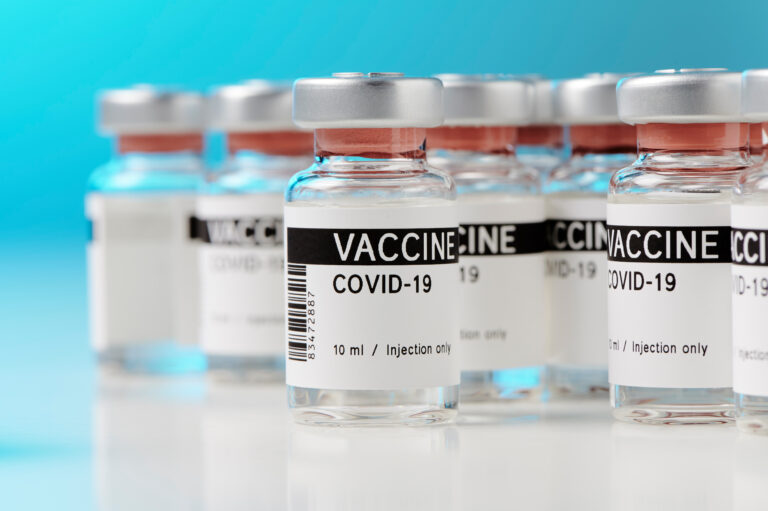- In today’s Recommendations for Industry, we discuss answers to Flu vaccine questions. Read More below.
- The FDA has approved Pfizer’s COVID-19 booster for seniors and those within high-risk groups to be given 6 months after the second dose.
- While all three approved COVID-19 vaccines in the U.S. are protective against COVID-19 hospitalizations, Moderna has shown to be the most effective (93%) at preventing hospitalization while Pfizer is at 88% and J&J vaccine at 71%.
- A study published in JAMA has found that allergic reactions to the mRNA COVID-19 vaccines are rare, in fact “serious allergic reaction[s] that require hospitalizations [are at a rate of] 1 in 4.7 million vaccinations for Pfizer and 1 in 2.5 per million for Moderna”. Of the 22 allergic reactions, 20 allergic reactions were in women, wherein 15 had a history of allergies to either antibiotics, foods, and other forms of medications.
- Starting in November, the Biden administration will lift travel restrictions for fully vaccinated foreign travelers into the United States. International travelers into the U.S. “will need to show proof of vaccination before boarding and a negative coronavirus test within three days of coming to the United States” while unvaccinated Americans who want to travel back to the U.S. from abroad will, “need to test negative for the coronavirus one day before traveling to the United States and show proof that they have bought a test to take after arriving in the United States”.
- Pfizer’s COVID-19 vaccine is demonstrating a strong immune response in children between 5 to 11 years old.
- Published in CDC’s MMWR last week, long COVID is most likely to occur in those 40 years and older, women, and those with at least one underlying health condition.
- The World Health Organization’s September 13 influenza update has found that worldwide influenza A and B viruses are being detected in similar proportions; however, activity remains at lower levels than expected for this time of the year.
- In the US, flu cases were lower this past week than last.
- There is a quickly growing Salmonella Oranienburg outbreak linked to an unknown food source that has sickened 127 people, some at home and some at restaurant clusters.
- The coli cake mix probe has also ended.
- OSHA has announced enhanced, expanded measures to protect workers from hazards of extreme indoor and outdoor heat. OSHA is implementing an enforcement initiative on heat-related hazards, developing a National Emphasis Program on heat inspections, and launching a rulemaking process to develop a workplace heat standard. In addition, the agency is forming a National Advisory Committee on Occupational Safety and Health Heat Injury and Illness Prevention Work Group to provide better understanding of challenges and to identify and share best practices to protect workers.” They will a) prioritize heat-related complaints; b) instruct compliance safety and health officers; c) expand the scope of other inspections to address heat-related hazards.
[em_section_title layout=”1″ title=”__empty__” title2=”Key ” title_highlight=”Points:” title_sub=”__empty__” title_icon=”__empty__” show_bar=”__empty__” show_img=”__empty__” description=”__empty__” title_lr=”t_left” _id=”415870″ custom_css=”{`kc-css`:{`any`:{`title-text`:{`font-size|+ .section-title h2,.title_tx h2`:`1.4em`,`padding|+ .section-title h2,.title_tx h2`:`27px inherit inherit inherit`},`highlight-text`:{`color|+ .section-title h2 span,.title_tx h2 span,.em-icon i`:`#973333`}}}}” image=””]
Recommendations for Industry
TAG Answers Flu Vaccine Questions
While flu activity is at lower levels than expected for this time of year (as noted in the Seasonal Flu Update above), TAG is beginning to get questions from clients about flu shots and general flu protections. Following are two of these: Q. What is the flu vaccine? A. According to CDC, the Influenza vaccines (flu shots) protect against the four influenza viruses that research indicates will be most common strains during the upcoming season.- Most vaccines are flu shots given with a needle, usually in the arm. These are made with inactivated viruses or without influenza virus
- A nasal spray also is available which is made with a live attenuated influenza vaccine
In Case You Missed It
- In Tuesday’s Recommendations for Industry, we discussed the NRA’s update on OSHA’s discussion of the Biden Vaccine/Testing Mandate. Read more here.
- A recent study of COVID-19 infections in California farmworkers has found that farmworkers are 4 times at risk of contracting COVID-19 due to “outdoor work exposures, crowded living conditions, and high body mass index (BMI)”. While employer interventions (providing hand sanitizer, gloves, masks, etc.) did lower risk, farmworkers reported that about 45% of employers didn’t even screen workers for fever or COVID-19 symptoms when coming into work.
- Due to a lack of resources and overflow of hospitals, Alaska has joined Idaho in declaring that it will not “prioritize treatment [at hospitals] to patients most likely to survive COVID-19 infections” which includes “ration[ing] medical care and treatments, including dialysis and specialized ventilatory support”.
- In fact, Kaiser Family Foundation found that in August, the preventable costs of unvaccinated COVID-19 patients rose to $3.7B, twice as high as June and July, combined!
- Last week, the WHO has declared that “for the first time in more than 2 months, weekly global COVID-19 cases dropped substantially, as cases decline in recent hot spots, including India and Japan”. However, fatalities in the African region rose by 7%.





